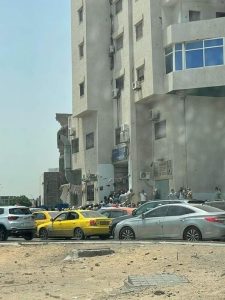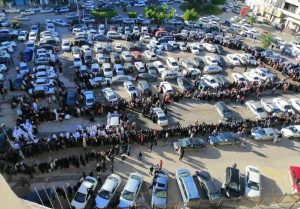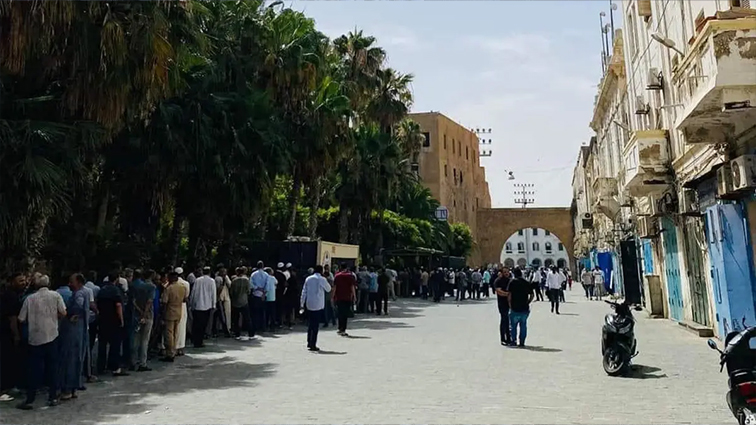Libyans piled up in long queues in front of banks, scrambling to withdraw their money to buy Eid al-Adha necessities, which sparked widespread dissatisfaction among citizens and complaints about banking policies in the country.
Pictures and video clips circulated on social media showed citizens gathering in large numbers in long lines in front of banks and money exchange shops in the capital, Tripoli, and other cities, where they waited for long hours under high temperatures to obtain cash.

In a video clip circulated on social media, a 90-year-old sheikh appeared waiting for his turn in line. He appeared tired and exhausted, and he appealed to the officials, saying: “It is forbidden for you, old men, women and young people to stand under the wall in temperatures exceeding 40. What is happening to us is torture. Where are you, officials?
Scenes of crowding and stampeding in front of banks sparked widespread discontent among Libyans, after they became frequent, especially during the holidays. Activist Ramadan Al-Taweeb wrote: “These pictures require the dismissal of the governor of the Central Bank and his gang, after they failed to perform their duties in providing liquidity to citizens.”

The cash liquidity crisis reflects the financial difficulties facing Libya as a result of the political and economic division, despite the large oil wealth and high revenues generated by oil sales.
According to figures published by the National Oil Corporation at the beginning of this month, the Central Bank of Libya received $7 billion and 622 million in the period between January and late May of this year.
Libyans continue to suffer as the cash liquidity crisis continues, which requires the authorities to take radical measures to resolve this crisis and ensure that liquidity reaches all citizens, especially during sensitive periods such as holidays.
UN report: 17 people were killed by landmines in Libya in 2023
